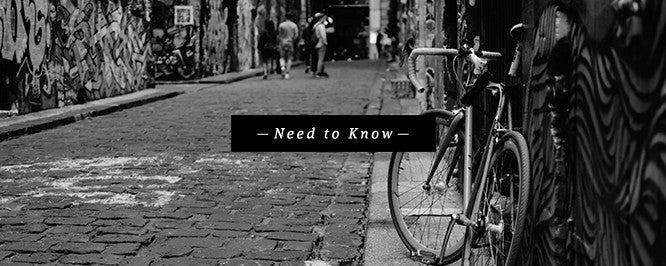 On Discipline, Intelligence, and Stoicism: It's Tough to Be Smart, but Smart to Be Tough
On Discipline, Intelligence, and Stoicism: It's Tough to Be Smart, but Smart to Be Tough
Must Triumph | Sam Yang
It's tempting to believe intelligence trumps everything else. "If only I were a genius," becomes a de facto magic answer that leads to everything we've ever wanted. If we don't get the things we want, it's either an effect of not being smart enough or because other people have advantages we don't: rich parents and/ or they were extremely lucky. Though there's nothing magical about effort and working hard. It's actually a lot of work.
 Build the Ultimate Garage Gym from Gear You Already Own
Build the Ultimate Garage Gym from Gear You Already Own
Outside | Ted Spiker
One of the oddest items I ever used as a piece of exercise equipment: a pillowcase. My trainer put three 35-pound weight plates inside their own pillowcases, and I had to slide them across the floor in a low mountain-climber-type move. The set fried my glutes and scorched my lungs, but it also showed me that if you’re inventive enough, you can use just about any old thing to work your body—and your brain.
 Activation Energy: The Reason Coffee Helps you Get Going
Activation Energy: The Reason Coffee Helps you Get Going
Farnam Street Blog
The beginning of any complex or challenging endeavor is always the hardest part.
Not all of us wake up and jump out of bed ready for the day. Some of us, like me, need a little extra energy to transition out of sleep and into the day. Once I've had a cup of coffee, my energy level jumps and I'm good for the rest of the day.
Chemical reactions work in much the same way. They need their coffee too.
Understanding how this works can be a useful perspective as part of our latticework of mental models.
Whether you use chemistry in your everyday work or have tried your best not to think about it since school, the ideas behind activation energy are simple and useful outside of chemistry. Understanding the principle, for example, can help you get kids to eat their vegetables, motivate yourself and others, and overcome inertia.
 Does Air Pollution Reduce Cycling’s Health Benefits?
Does Air Pollution Reduce Cycling’s Health Benefits?
National Geographic | Aaron Sidder
Most cyclists have been there: peacefully pedaling one minute and sucking bus exhaust the next. In the moment, all you can do is keep riding and shrug off the blast of smoke. But now a growing body of research suggests breathing this pollution can have both short-term and long-term health consequences.



